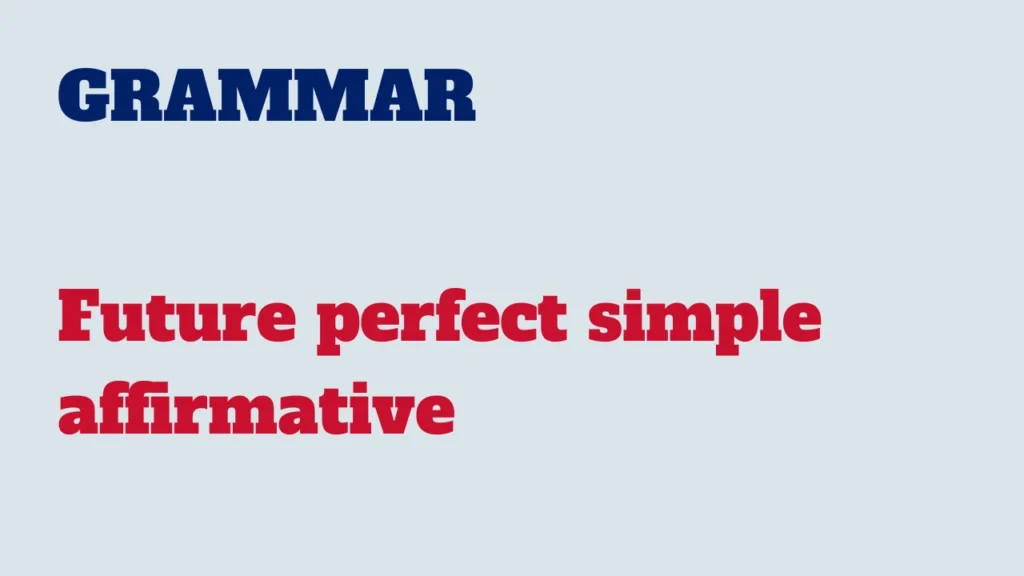In the future perfect simple tense, affirmative sentences are constructed by using the auxiliary verb “will” after the subject, then “have“, then the past participle of the main verb, and any additional information or complements.

Here’s how to create future perfect simple affirmative sentences:
Structure:
Subject + will + have + Past participle of the main verb + Complements or additional information
Examples:
I will have completed the project by next Friday.
She will have submitted her application by the deadline.
We will have finished our dinner by the time they arrive.
They will have graduated from college by the end of the year.
He will have visited three countries by the time he turns 30.
Table: Future perfect simple – affirmative
| SUBJECT | FUTURE PERFECT AFFIRMATIVE | EXAMPLES |
|---|---|---|
| I | will have + past participle | I will have finished my work by the deadline. |
| You | will have + past participle | You will have completed the assignment before the class. |
| He/She/It | will have + past participle | She will have achieved her goals by the end of the year. |
| We | will have + past participle | We will have traveled to three countries by next summer. |
| You (plural) | will have + past participle | You will have learned the language by the time you visit. |
| They | will have + past participle | They will have built the house by the scheduled date. |
Prepositional phrases that are often used with the future perfect simple:
Prepositional phrases that often go with the future perfect tense typically indicate a point or duration in the future when the action will be completed. Here are some examples:
By [time or date]:
- I will have finished the report by Friday.
- She will have graduated by the end of the year.
In [a certain amount of time]:
- We will have completed the construction in two weeks.
- They will have achieved their target in six months.
By the time [event occurs]:
- He will have returned by the time you arrive.
- They will have fixed the issue by the time the meeting starts.
Before [event or deadline]:
- I will have submitted the application before the deadline.
- She will have packed her bags before we leave.
At [a specific point in the future]:
- We will have reached our destination at night.
- They will have signed the contract at noon.
Usage of future perfect simple – affirmative:
Expressing completion by a specific time in the future:
Used to convey that an action will be completed before a specific point or period in the future.
Example:
By the time you return, I will have read the entire book.
Discussing achievements or accomplishments:
Used to highlight achievements or accomplishments that will have occurred by a certain future moment.
Example:
She will have published her first novel by the age of 25.
Talking about anticipated future experiences:
Can be employed to express expectations about experiences that will have happened in the future.
Example:
By the end of the trip, we will have explored all the major landmarks.
When NOT to use future perfect:
Avoid using the future perfect tense unless the action you talk about will be completed before a specific future deadline. If there’s no mention of a deadline, opt for the simple future tense.
Correct: John will leave.
Incorrect: John will have left.
Understanding how to form and use future perfect simple affirmative sentences allows you to express completed actions or achievements anticipated to occur before a specified future moment. Practice constructing affirmative sentences in the future perfect simple tense to enhance your language skills. Happy learning!



